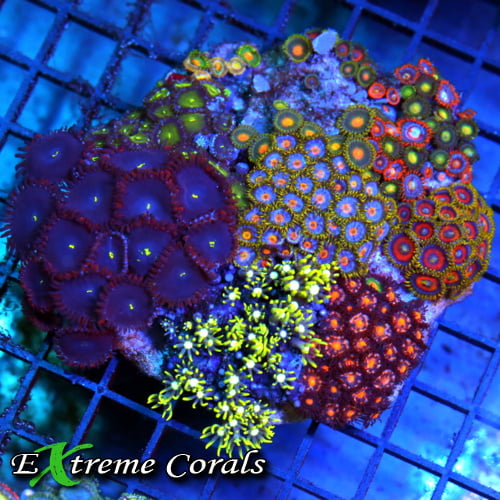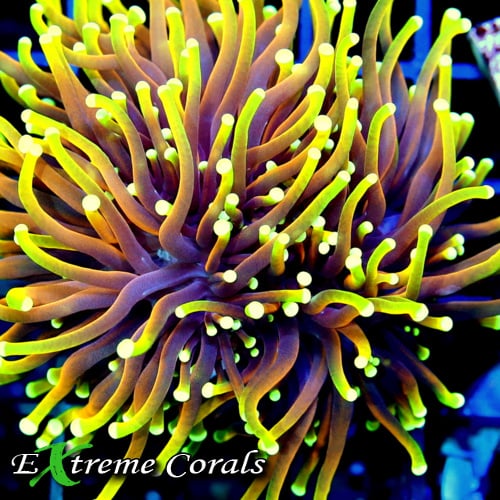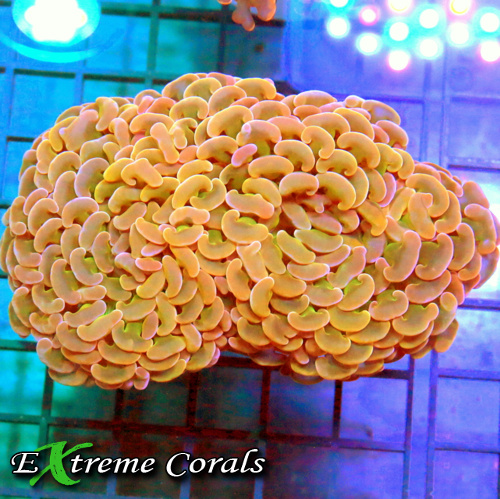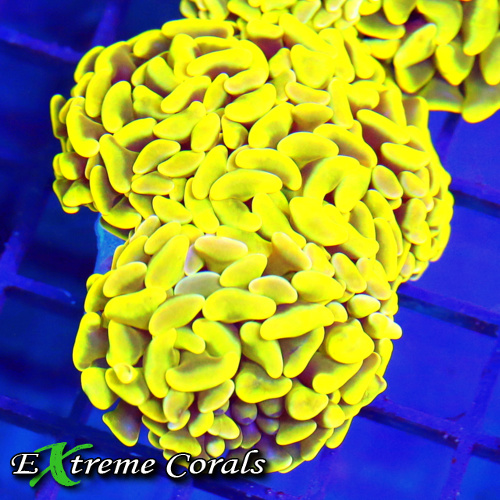Extreme Corals News and Updates
Caring for Live Corals: A Beginner’s Guide
Nurturing the Beauty of Underwater Ecosystems: A Beginner's Guide to Live Corals
Discover the beauty and benefits of live corals with this beginner's guide. Learn how to set up the ideal environment, choose the right corals, and maintain water quality. From feeding techniques to common challenges, unlock the secrets to cultivating a vibrant underwater ecosystem in your aquarium.
by scott Shiles • May 01, 2024
What are Live Corals?
Live corals are marine animals that belong to the class Anthozoa. They are composed of small polyps that secrete a hard calcium carbonate skeleton, forming the structure of coral reefs. These corals come in various shapes, sizes, and colors, adding vibrant beauty to underwater ecosystems. Symbiotic algae living within the tissues of live corals provide them with energy through photosynthesis, which is essential for their survival. This mutually beneficial relationship is known as coral-algae symbiosis.
Benefits of Keeping Live Corals
Live corals add vibrant colors and natural beauty to your aquarium. They provide a healthy environment for fish and other marine creatures to thrive. Live corals are known to improve water quality by absorbing excess nutrients and carbon dioxide, leading to a more balanced ecosystem. Additionally, these corals promote biodiversity by providing a habitat for various small organisms like shrimp and crabs.
Setting Up the Ideal Environment
Proper lighting: Choose the right lighting system based on the type of corals you have. Research the light requirements of your specific coral species to ensure they receive adequate light to thrive.
Water quality: Maintain stable water parameters such as temperature, salinity, and pH levels. Regular water testing and proper water changes are crucial to provide a healthy environment for your corals.
Water flow: Corals need adequate water flow to help them receive essential nutrients and oxygen. Install a reliable water circulation system to simulate natural water movement in the ocean.
Supplements: Consider supplementing your tank with calcium, magnesium, and other trace elements to support coral growth and coloration. Regularly monitor and adjust your dosing regimen based on coral needs.
Tank placement: Place your coral tank away from direct sunlight and high-traffic areas to minimize stress on the corals. Ensure stable and appropriate water temperatures to prevent fluctuations that can harm your corals.
Compatibility: Pay attention to the compatibility of different coral species and their placement within the tank. Some corals may have aggressive tendencies and can harm neighboring corals, so plan your tank layout accordingly.
Creating a suitable environment for your corals is crucial to their long-term health and vibrancy. By addressing these factors, you can promote optimal conditions for your corals to thrive and display their full beauty in your tank.
Lighting: Corals require strong and consistent light to photosynthesize and grow. Choose the right lighting system for your tank based on the type of corals you have.
Water Quality: Maintaining proper water quality is crucial for the health of your corals. Monitor parameters such as temperature, salinity, and pH levels regularly.
Water Flow: Corals benefit from gentle water movement to help them receive nutrients and expel waste. Consider adequate flow rates and placement of powerheads or wavemakers.
Placement: Position your corals in an area of the tank where they can receive sufficient light and water flow. Also, be sure to leave ample space between corals to prevent overcrowding and competition for space.
Remember, creating the right environment is vital for the well-being of your live corals.
Choosing the Right Corals for Beginners
The best corals for beginners are Soft Corals and LPS Corals.
Soft corals, like Mushroom and Zoanthids, are low-maintenance and perfect for starters.

LPS corals, such as Hammer and Torch, are colorful and grow well.

Feeding and Nutrition for Live Corals
Live corals obtain essential nutrients and energy through a process called photosynthesis. This means they can produce their food using light. However, they also benefit from supplemental feedings to support their growth and health. Here are some key points to consider when feeding your live corals:
Feed sparingly: Corals do not need to be fed daily. Overfeeding can lead to water quality issues.
Use specialized coral food: Look for quality coral food products available in the market to ensure your corals receive the right nutrients.
Target feeding: Some corals, such as LPS (Large Polyp Stony) corals, benefit from direct target feeding with a pipette or baster.
Monitor appearance: Pay attention to your corals' appearance, as unhealthy corals may indicate a nutritional deficiency.
By providing appropriate feeding and nutrition, you can help your live corals thrive and enhance the beauty of your aquarium.
Water Quality and Maintenance Tips
To keep your live corals healthy, it's crucial to monitor and maintain proper water quality in your tank. Here are some essential tips to help you maintain optimal water conditions for your corals:
Regularly test the water parameters such as salinity, temperature, pH, ammonia, nitrates, and phosphates to ensure they are within the recommended range for coral health.
Conduct regular water changes to remove accumulated waste and maintain overall water quality.
Invest in a good protein skimmer to help eliminate organic compounds and prevent nutrient buildup in the water.
Ensure proper water flow in your tank to prevent dead spots where detritus can accumulate and negatively impact water quality.
Use a quality aquarium filter to help remove physical and chemical impurities from the water.
Keep an eye on algae growth in the tank as it can affect water quality by consuming oxygen and releasing toxins.
Maintain a balanced nutrient level in the water to support coral growth while preventing excessive algae growth.
By following these water quality and maintenance tips, you can create a healthy environment for your live corals to thrive.
Common Challenges and Solutions
Live corals in aquariums can face various challenges that may affect their health. Here are some common issues and solutions to help you keep your corals thriving:
High nutrient levels can lead to algae growth, which can harm corals. Regular water testing and appropriate nutrient control can help prevent this.
Improper lighting can cause corals to lose their color or not thrive. Ensure your corals receive the right amount and type of light for their specific needs.
Fluctuating water parameters such as temperature and salinity can stress corals. Monitor these parameters regularly and make adjustments as needed.
Pests like flatworms or Aiptasia can prey on corals. Quarantine new corals before adding them to your tank and treat any pests promptly.
By addressing these challenges proactively, you can create a suitable environment for your live corals to flourish.
Coral Propagation Techniques
Coral propagation involves the process of growing new corals from existing ones. Fragmentation is a common technique where a piece of coral is broken off and attached to a substrate until it grows into a new colony. Fragging is another method where corals are cut, secured, and allowed to regenerate. To successfully propagate corals, it's crucial to consider factors like water quality, lighting, and proper handling techniques.
Handling Live Corals with Care
When handling live corals, it's crucial to do so with care to ensure their well-being. Here are some essential tips to keep in mind when dealing with live corals:
Always handle live corals gently to avoid damaging their delicate structures.
Avoid touching the corals excessively to prevent stressing them out.
When moving or placing corals, do so slowly and carefully to prevent any harm.
Ensure that your hands are clean and free of any contaminants before touching the corals.
It's recommended to wear gloves to protect both yourself and the corals from any potential harm.

Now that you have learned the basics of caring for live corals, it's time to summarize and plan for your next steps. Remember to regularly monitor your coral's health and water parameters to ensure they thrive. Here are some key points to keep in mind as you continue on your coral-keeping journey:
Maintain stable water parameters such as temperature, salinity, and pH.
Provide proper lighting and water flow for your corals' growth.
Feed your corals with the right supplements and foods.
Keep an eye out for signs of stress or disease in your corals.
Research and expand your knowledge on different coral species to enhance your aquarium's beauty.
By following these steps and staying attentive to your corals' needs, you can create a vibrant and healthy coral reef ecosystem in your aquarium. Get ready to enjoy the beauty of live corals and the rewarding experience of caring for them

